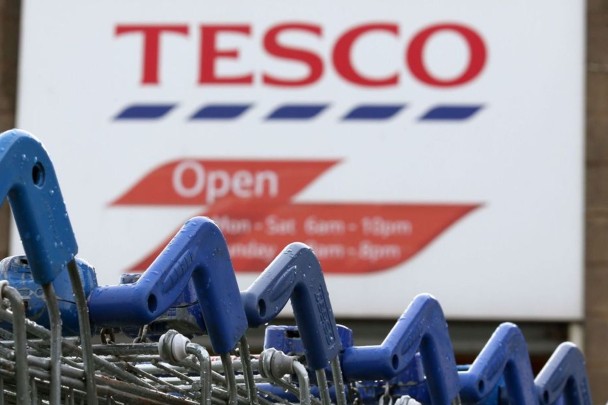June 23, 2025 Industry news
A quiet revolution in grocery shopping is gaining pace. Artificial intelligence (AI) is no longer a future concept.
It is already reshaping how people discover, choose and buy the products they need. From intelligent product suggestions to automated stock decisions, AI is helping grocery become more conversational, more personal and more intuitive.
Consumers are beginning to expect more than filters and static lists. They want fast, relevant answers and smarter journeys that reflect who they are and what matters to them. AI is making that possible, helping shoppers find healthier options, save time and make more informed purchasing decisions.
None of this is possible without high-quality, consistent and structured data. This is where GS1 standards play a vital role. As the common language of business, they can help to ensure AI systems work reliably and responsibly, connecting products, platforms and people with confidence.
Redefining the shopping journey
Until recently, most online grocery experiences began with a typed search and ended with a scroll through generic lists. While functional, this approach rarely reflected personal needs or contexts. AI is changing that. Shoppers can now ask, “what’s a good plant-based dinner under 30 minutes?” and receive suggestions that consider dietary preferences, previous purchases and even sustainability goals.

Tesco is already using AI in this way. Through its Clubcard platform, it analyses purchasing habits to recommend products that match customers’ preferences and lifestyles, such as suggesting lower-sugar alternatives or items users may have forgotten. Personalisation at this scale depends on accurate, structured product data to match products and claims to individual preferences.
Tesco is also working with dunnhumby to build AI-driven tools that optimise product assortment by store. Using data on local buying trends, AI helps decide what to stock, where and when. This ensures shelves are better aligned with store needs, reduces unnecessary inventory and ulitmately waste. GS1 identifiers such as GTINs, categories and pack sizes play a key role in underpining the system’s accuracy.
Powering intelligence
No matter how advanced the algorithm, AI cannot function without structured, interoperable data. If product information is incomplete or inconsistent, recommendations will be flawed and consumer trust could be negatviely impacted as a result. This is especially critical in grocery, where information such as allergens, nutritionals and provenance can carry health, safety or regulatory implications.
GS1 standards can help address that challenge. By uniquely identifying every product and supporting standardised data exchange, they provide AI systems with a foundation they can interpret with confidence. From fresh produce to household items, GS1 standards ensure the data attached to a specific product means the same thing regardless of where it is accessed.
This level of consistency is not just a technical requirement, it is a commercial and ethical necessity. It enables personalised recommendations to be safe and relevant. It allows automated systems to make decisions in line with real product attributes and it ensures that consumers receive consistent, accurate information wherever and however they shop.
The use of AI in grocery is not limited to customer-facing tools. Ocado, for example, now uses AI and computer vision in its automated fulfilment centres to improve pick accuracy, reduce waste and predict machine maintenance needs.
Opportunities for retailers and brands
The combination of AI and GS1 standards can unlock significant commercial potential. Retailers can offer more relevant search results, dynamic promotions and enhance the real-time offeres by chat interfaces.

Brands can become significantly more discoverable in new contexts, such as recipe inspiration, lifestyle queries or searches based around specific events, times or situations when consumers are more likely to be seeking out a certain product.
GS1 standards also allow this innovation to scale. A single, well-maintained product record can serve multiple retailers, platforms and touchpoints. This reduces duplication, supports compliance and ensures that consumers receive consistent information wherever they shop.
The result is a more connected, transparent and efficient grocery industry. One where AI is not a bolt-on feature but a seamless part of the digital experience.
Joining the AI revolution
For those looking to seize the opportunities offered by AI, a vital early step is ensuring strong product data quality. Review your data to check that it is complete, accurate and structured in line with GS1 standards. Focus on attributes that shape shopper decisions or carry regulatory importance, such as allergens, nutritional content and packaging claims.
Consider not only what your data says, but how it is shared. Many AI-powered systems rely on structured feeds and digital catalogues to access and interpret product information. Working with technology partners and data platforms that use GS1 standards could help ensure your products are visible, discoverable and consistent, making it easier to connect and scale across channels.
Don’t forget to consider how AI might improve your customer experience. Whether it is helping shoppers find meal ideas, filter by lifestyle needs or get real-time answers to questions, start with the moments that matter most to your audience. Then build from there, always grounding your approach in transparency and trust.
A smarter future built on trusted data
AI has the potential to make grocery shopping simpler, smarter and more sustainable.

However, AI cannot do this alone. The systems that power tomorrow's experiences will depend on the data and standards we use today.
GS1 UK is committed to supporting industry with the tools, frameworks and guidance needed to navigate this shift.
By combining the intelligence of AI with the foundation of trusted data, we can help shape a grocery sector that is more responsive, more resilient and more relevant to the lives of shoppers everywhere.



